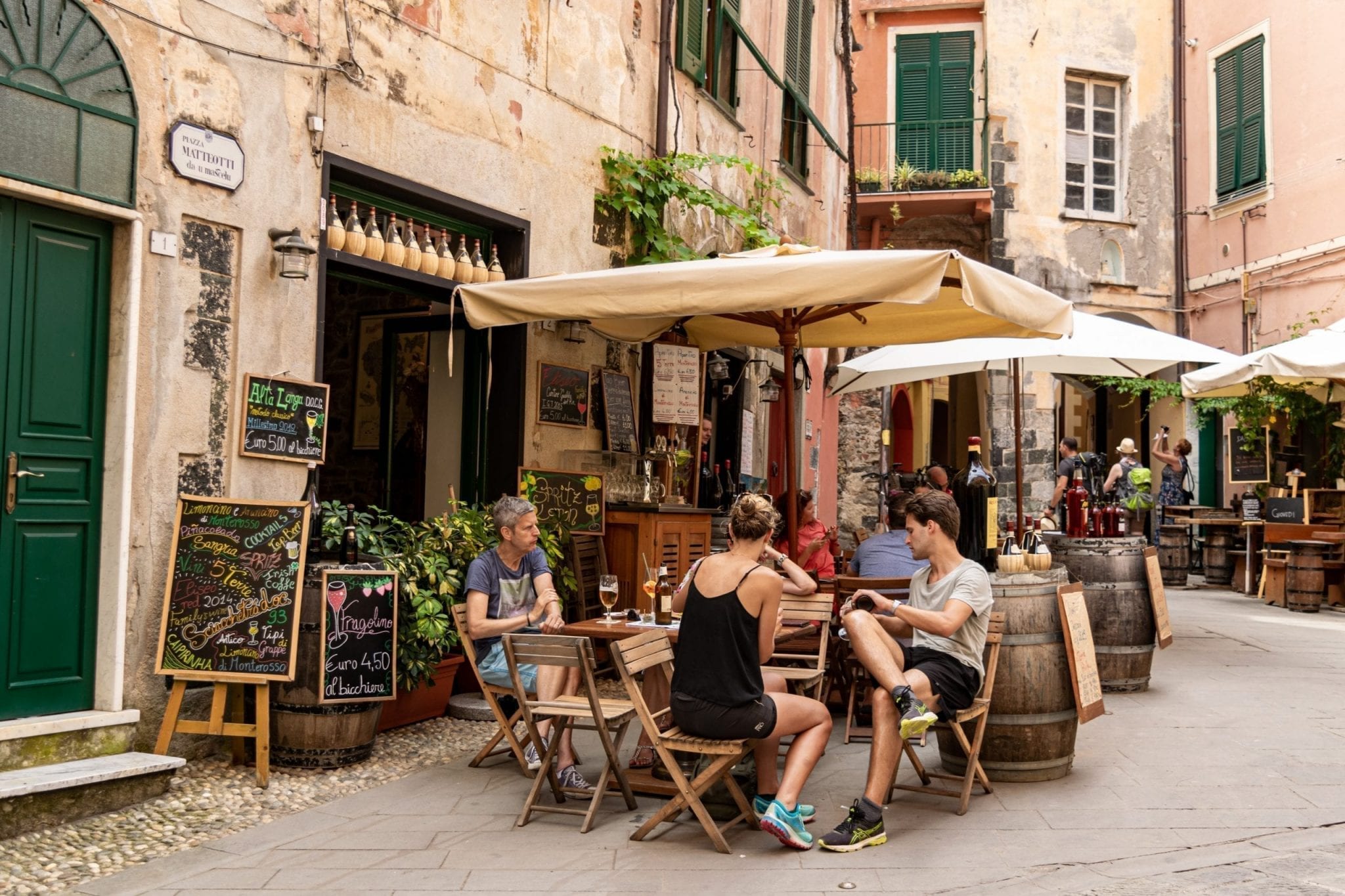
Italy's Coperto Explained A Quick Guide to the Coperto in Italy
The Coperto, an Italian word meaning "cover charge," is a unique dining phenomenon that you'll encounter when dining out in Italy. This small fee, often added to your bill before you even sit down, has caused some confusion and debate among both locals and visitors.

October 8, 2019 Ponte Coperto, Pavia, Italy Fiftieth Anniversary
The term coperto means "cover charge" and, in fact, it refers to everything that is present on the table when you sit down: it includes the work of the restaurant to set and clear the table, by offering guests tablecloths, plates, glasses and clean cutlery.

Mercato Coperto, a Market in Ravenna Stock Photo Image of coperto
Coperto is a small fee, usually a couple of Euros or so, tacked on to an ala carte meal you eat in a ristorante. Usually, the coperto is included in the price fixed meals, as in the "pranzo di lavoro" or "worker's lunch" served in my corner of Tuscany, the Lunigiana, so you don't see it on the bill.

Ponte Coperto Erasmus photo Pavia
The coperto [koh-PEHR-toh] is a per-person fee due in all kinds of restaurants in Italy and it means cover charge. It covers the costs for tableware, table linen, and bread. So only trattorie, pizzerie, and restaurants charge you with it. Or places where you sit and have a meal (or at least a course).
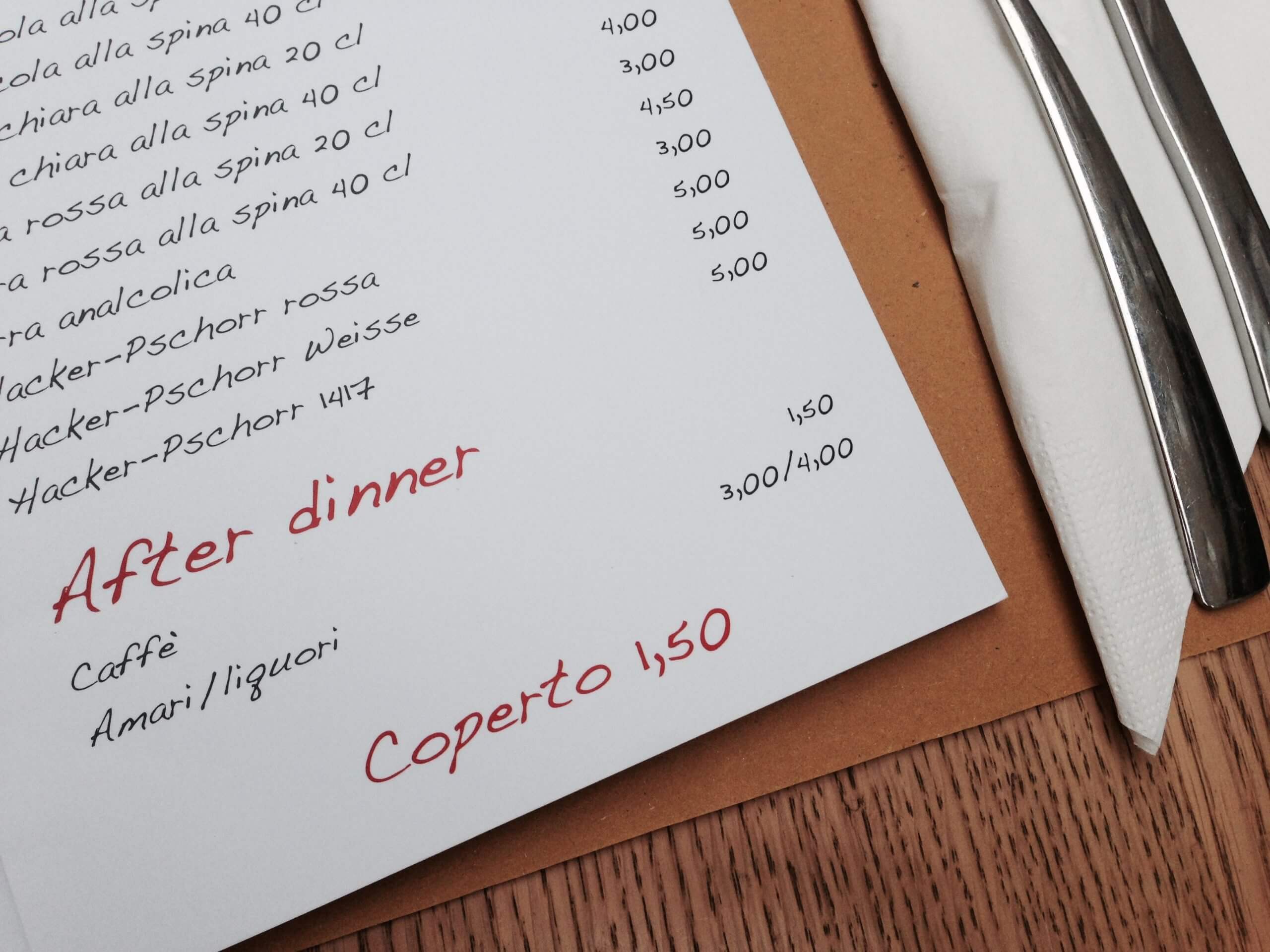
O que é o “coperto” italiano? Versátil Idiomas
You will probably see the coperto and servizio charges on the menu and bill during your time in Italy: Coperto. The coperto or pane e coperto is a charge to sit at a table (and sometimes for bread), usually in the range of €1-4. You will find it at many restaurants in Italy, especially those that see tourists. This is a charge for the use of.

Ponte Coperto of Pavia, Italy Editorial Image Image of instagram
Simply put, coperto is a fee per person that is usually specified on the menu. The fee ranges from 1-3 euros, but can also be 5 euros for expensive restaurants. Coperto is not tips, but a fee that covers the price of bread you can consume, oil, salt, tablecloths or other items.

Ponte Coperto, Pavia (Italy) The Ponte Coperto ("Covered B… Flickr
But, a coperto or coperti charge on receipts in Italy is actually fairly common. "Coperto" translates to "covered" in English, and is typically a charge per person that "covers" things like the.
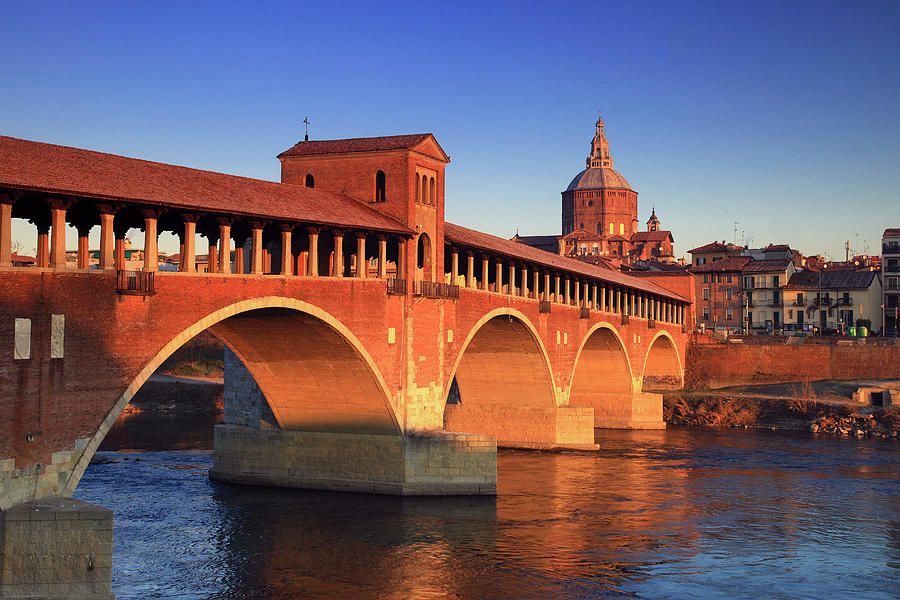
Lombardy, Ponte Coperto, Italy Digital Art by Davide Carlo Cenadelli
Coperto is a charge added to the bill for quite literally dining at an Italian restaurant - this includes the linen on which you put your plate, the plate itself, the bread you receive with meals, etc. Coperto, by law, must be included in the menu - it always is, though usually it's a bit hidden away, so as not to attract the eye too much.

Ponte Coperto, Pavia. Pavia, Lombardy, Italy
the coperto and tip have nothing to do with each other. in Italy tipping is not the norm besides perhaps a small rounding of the bill or a little change on the table.. the cover charge is the norm except in Rome where it is not legal BUT they can charge for bread which you have to refuse if you don't want to pay for it. jsut because they set it on your table doesn't make it free.

Ponte coperto Pavia Lombardia, Italy Pavia, Italy vacation
What is The Coperto in Italy? — ALONG DUSTY ROADS Confused about the coperto charge in Italy? You're not the only one…let our short guide clear things up about what the coperto is (and what it definitely isn't). Originally published in 2021, and updated May 2023. Picture the scene.

Pin on дороги и мосты
What Coperto Means in English In English coperto by covered. In reality, the Cambridge English-speaking dictionary defines this as covered, protected, indoors. Thinks starting it as a cover fees for the cost is provision indoor shelter, table linens, clean utensils, and breads of who no table the Italian is complete without. Back to Top History
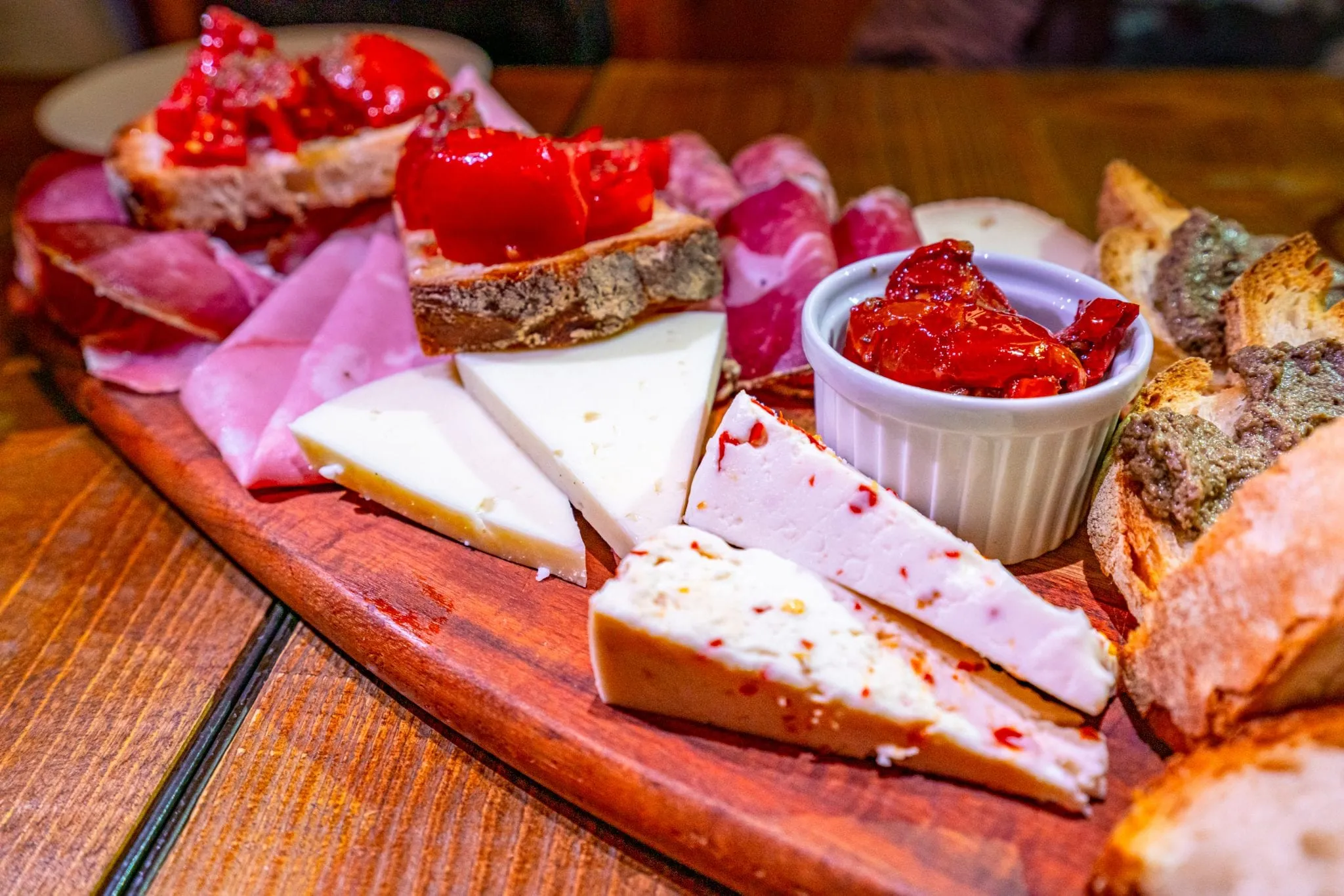
Italy's Coperto Explained A Quick Guide to the Coperto in Italy
Coperto is a unique tradition deeply rooted in Italian dining culture. This per-person fee, charged in Italian restaurants, covers the cost of table linen, tableware, and bread.

Co to jest coperto i dlaczego należy go szukać w menu Italian
Coperto literally means covered, referring to literally everything covering or on your table at a restaurant. Coperto also translates to sheltered or indoors, shedding light onto the history of why the cover charge is called just so in Italian. History Of The Coperto In Italy

What is The Coperto in Italy? — ALONG DUSTY ROADS
Postcards from Italy Deciphering Your Restaurant Bill in Italy: Coperto, Servizio, and Tipping July 25, 2014 Travelers to Italy often scratch their heads when presented with their restaurant bill. Though sales tax is (thankfully) included in the item prices, a number of mystery charges suddenly seem to surface when it is time to settle up.
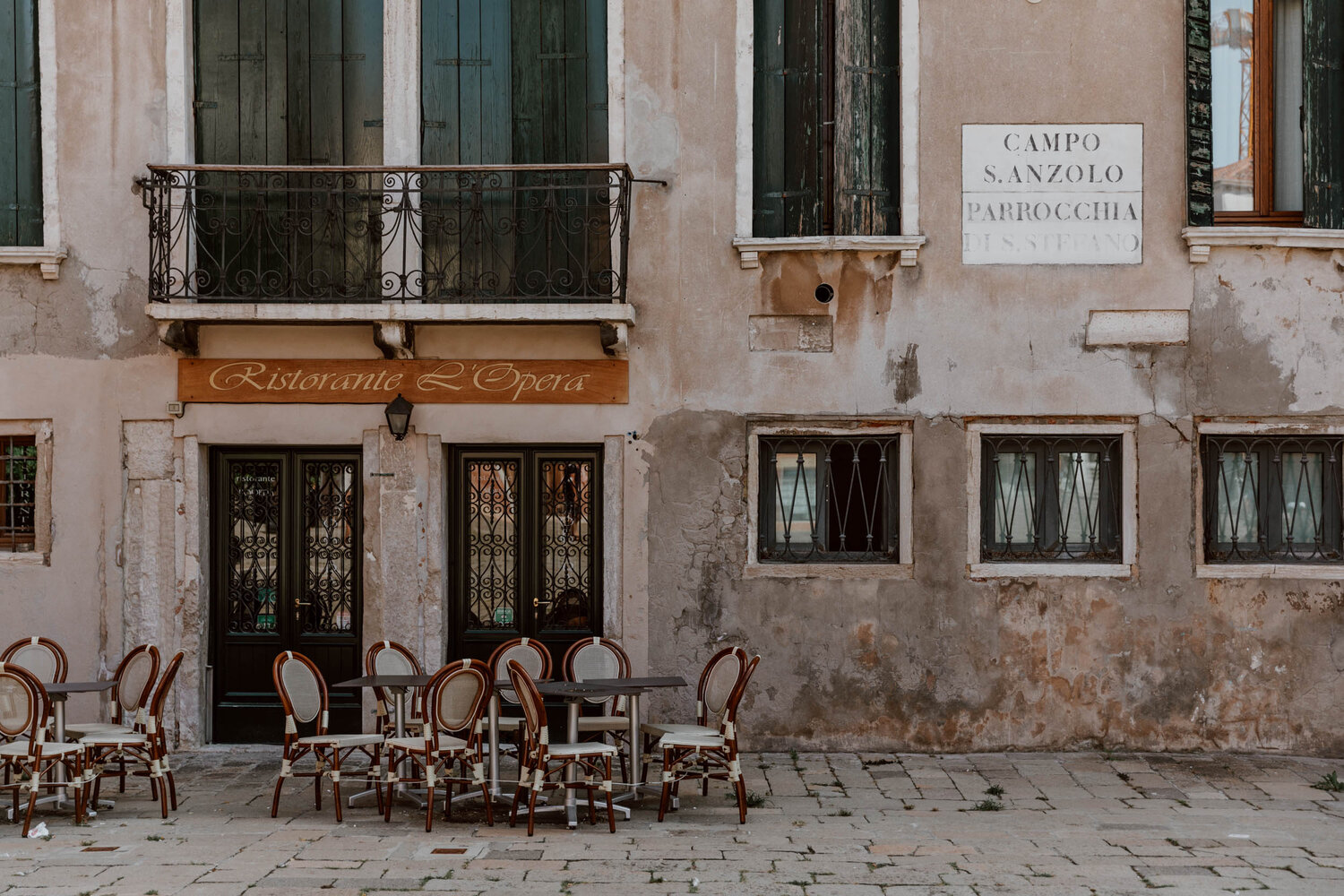
What is The Coperto in Italy? — ALONG DUSTY ROADS
What Exactly is a Coperto in Italy? A coperto in Italy is simply a cover charge-and yes, you'll see it just about everywhere! READ NEXT How to Order Coffee in Italy: Essential Guide for Caffeine Lovers Typically, a coperto is between 1 and 3 Euro per person and is charged for adults and children alike.

Il Ponte Coperto, simbolo di Pavia, e il Duomo in lontananza Best
The Cambridge English dictionary in fact, defines coperto meaning as "covered, protected, indoors." So you can think of coperto as a cover charge for the cost of providing indoor shelter, table linens, clean utensils, and bread which no table in Italy is complete without. History of Coperto in Italy